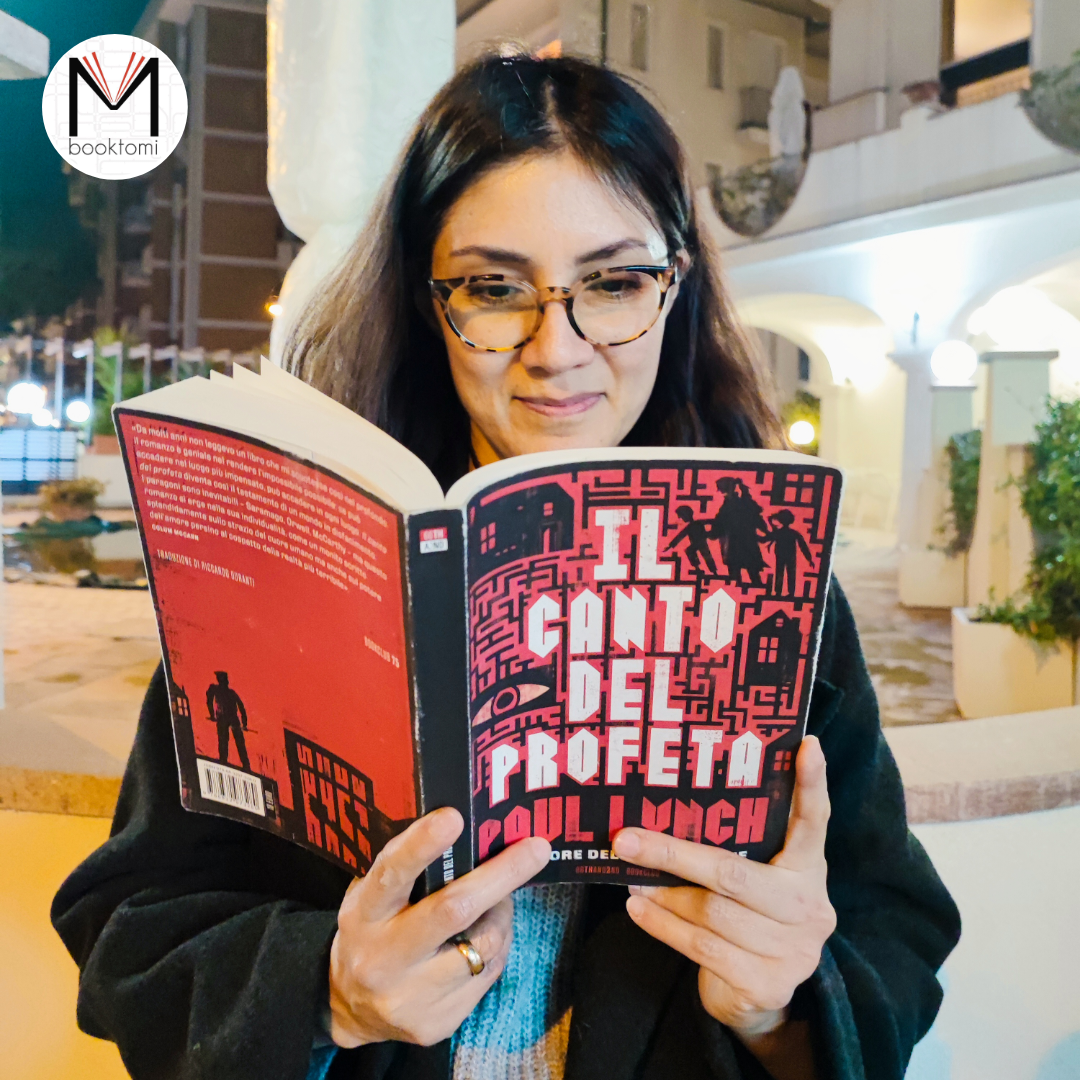“She has entered a part of herself where she is absolute, she has a sword between her teeth.”
Loss. Confusion. Fear. Courage. And: hope.
You are opening a book that is a flow of lava, dense, incendiary, inexorable. Starting from the writing: no quotation marks, compact paragraphs, syncopated scene changes. All downhill, dragged down the mountain, we would call it “crescendo” if it didn’t resemble a precipice. It’s as if we’re waiting for a turning point that doesn’t arrive, the impact is always postponed until the last line which isn’t a crash but a look upwards, an immense sky that recedes and fills the eyes without being scary anymore.
Someone spoke of dystopia: accurate only to the extent that the place – Dublin – is a fictitious pretext for a thousand elsewheres where nothing other than dystopia, only aberrantly present. “Prophet song” is the ruthless description of an everyday life, ours, Western, privileged, which crumbles under the heavy blows of the nascent war; it is not a historical novel and yet it is History as we have studied it so as not to see it repeat itself and, at the same time, in its unavoidable repetition. Behind us and before our eyes. To say that the fight for freedom is never given, never definitive, threatened as it is by the strong winds of ignorance and the limitation of memory. Every prophet always repeats the same song.
A man, husband, father and trade unionist, leaves home to participate in a demonstration and never returns. His wife, Eilish, is left with four children and an elderly father who oscillates between a very lucid reading of reality and the obfuscation of dementia. The narration tells us that she is not the only one, caught between staying and going, but we are with her, we see her lose her eldest son among the rebels, her work, her sleep – never: her hope. Statuesque in collapse and devastation. What emerges is the portrait of an incredible woman for her ability to hold everything together, to be bent by pain, by loss, by doubts, broken but never given up (extreme, we would venture, of what a woman often manages to do in many lives any).
What is striking is a certain imagery of the abyss, of the void ahead, which runs through every page: what keeps us from defeat, from the leap? What does hope hold on to? The answer “to the children” does not seem to be enough for Lynch (small surge of gratitude), but what Eilish evokes in more than one passage is the extraordinary preciousness of the ordinary. The life that nestles in the corners, the meaning, torn apart by the violence of war, scattered in the beauty of every tiny daily gesture, now lost. Triviality to say that we appreciate things when they are no longer there? But when life crashes into death, what weight does the word “banal” have? Isn’t that what we would want most? The banality of the good, the small, the obvious, the ordinary, is also given. The extreme flatters the imagination when peace and freedom are, foolishly, taken for granted.
The descriptions of the city’s nature as it takes its course, like the different quality of light that marks the days, gather into brief glimpses of meaning, lost or rediscovered, casual and yet important: “…something of the night remains every day” – the trace of darkness in light, indelible, like a dark spot that makes the white around it whiter.
Reading “Prophet’s Song” today is painful and distressing, it asks a lot of us as readers and as aware human beings; at the same time, unexpected generosity gives us all of Eilish’s strength, courage and determination. And: hope
_____________________________________________________________________________________________________
Paul Lynch, Il canto del profeta,66TH2ND, Roma, 2024
Original edition: Prophet Song, Oneworld Puublications, London, 2023



